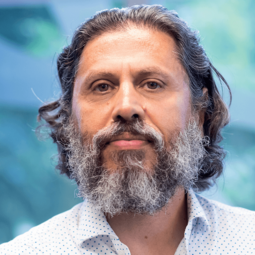A researcher at Waterloo Engineering has been recognized by an international magazine dedicated to laboratory medicine for his work using artificial intelligence (AI) and medical imaging to diagnose cancer.
Hamid Tizhoosh, a professor of systems design engineering, was named to the 2020 Power List released annually by The Pathologist.

Hamid Tizhoosh is director of the KIMIA Lab at Waterloo Engineering.
He is one of 20 researchers from around the world in the “big breakthroughs” category for “trailblazers working at the cutting edge and driving forward the future of the field.”
Tizhoosh is director of the Laboratory for Knowledge Inference in Medical Image Analysis (KIMIA Lab) at Waterloo.
The magazine’s citation says Tizhoosh “leads the world’s largest AI and machine learning lab focused exclusively on image search in pathology. As the first to harness content-based image retrieval to search for similar cases, (he) has opened many eyes to the potential of AI-powered image search.”
His approach combines AI and collected human knowledge by matching digital images of tissue samples in new cases of suspected cancer with previously diagnosed cases in a database.
“Working in an area where new ideas may potentially disrupt decades-old workflows might not be rewarding in the short run – but sticking to one’s vision and learning from the objective critiques of others are vital to reach the shores of certainty,” Tizhoosh said.